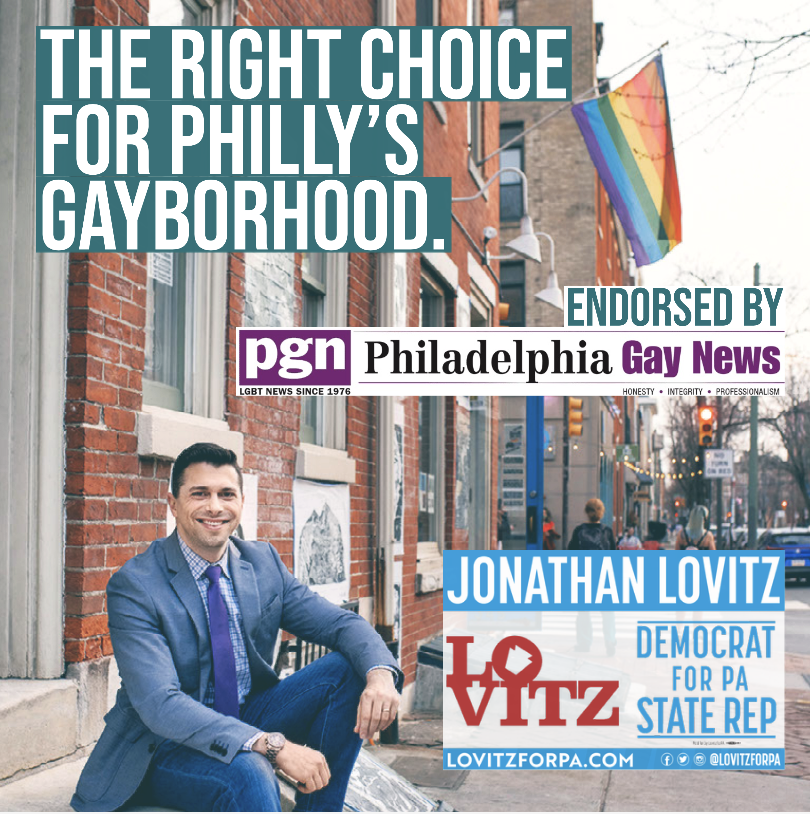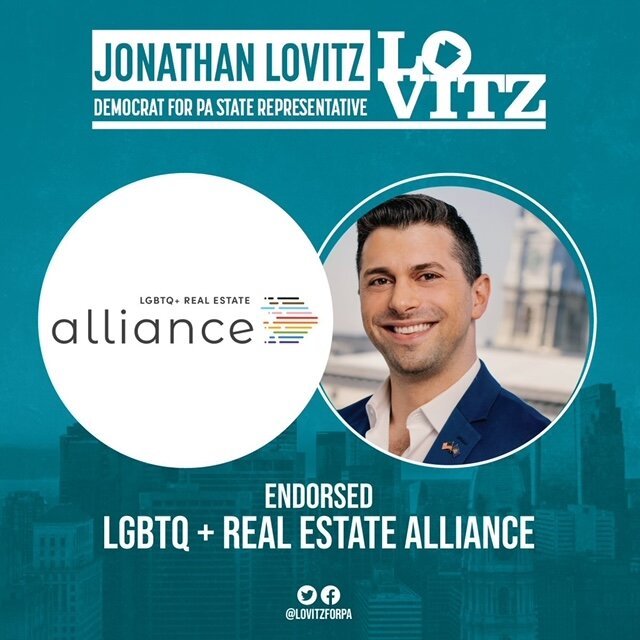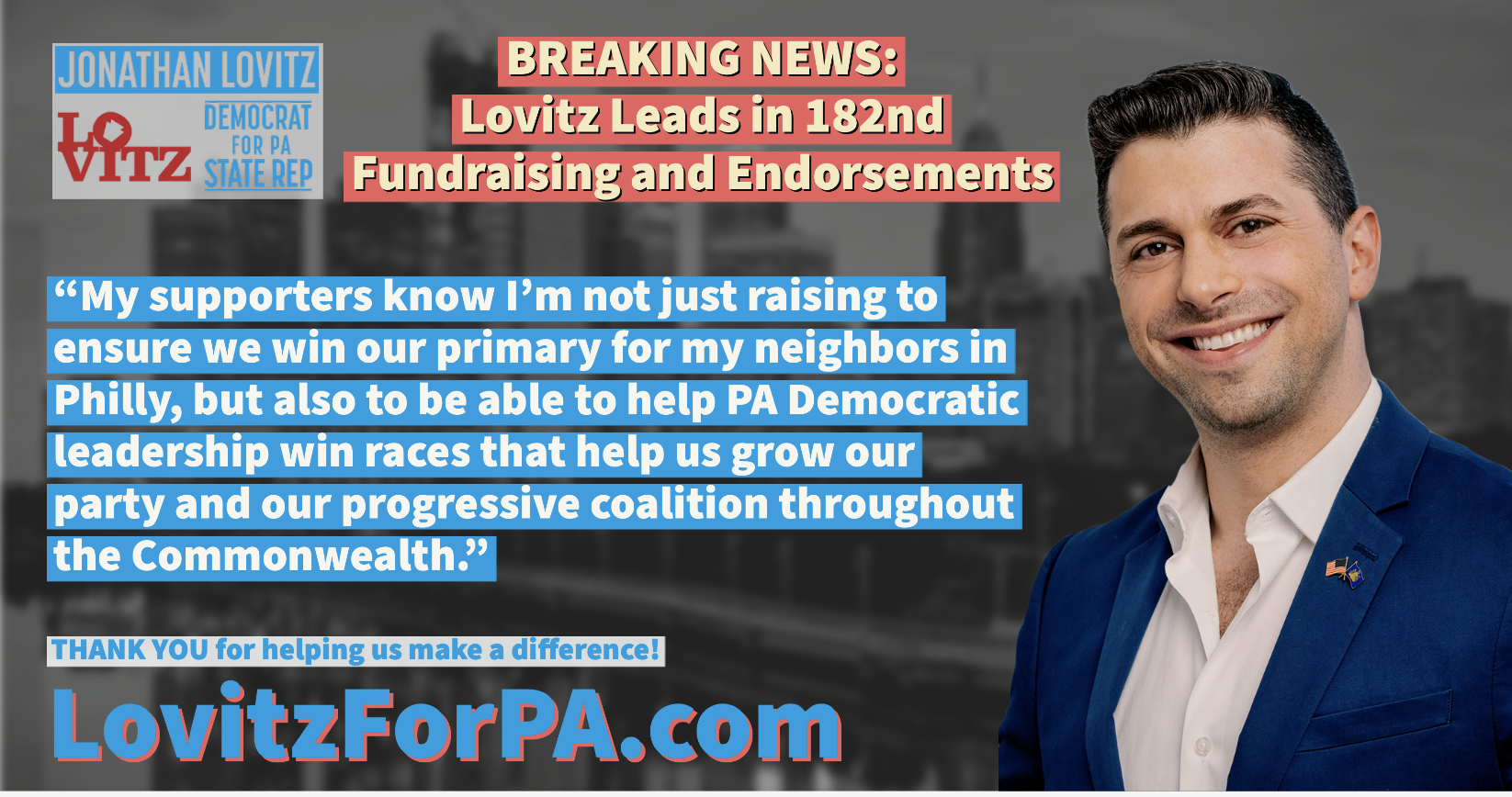Op-Ed: When curtains rise, so does Philly’s economy
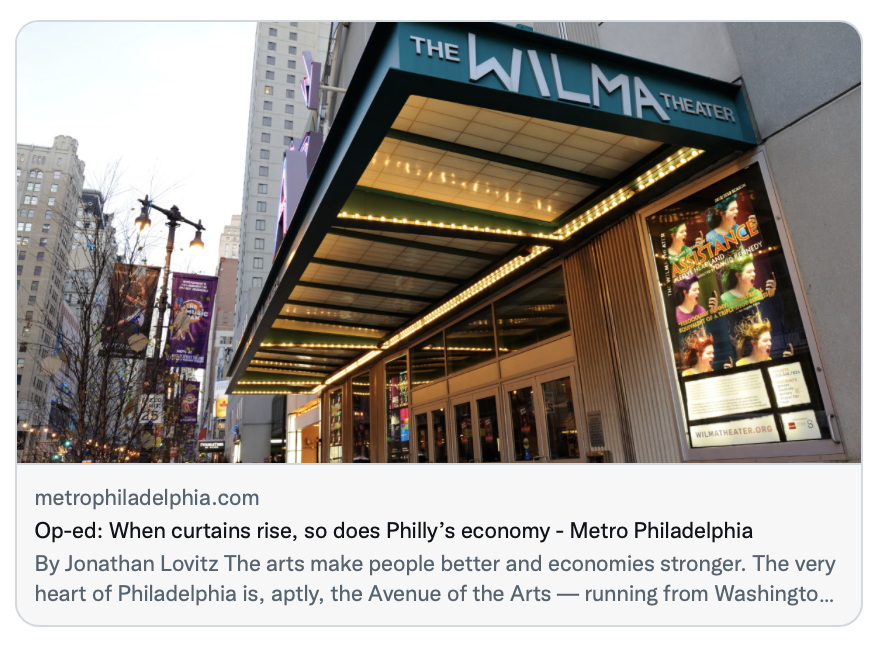
The arts make people better and economies stronger.
By Jonathan Lovitz for Metro Philadelphia
The arts make people better and economies stronger.
The very heart of Philadelphia is, aptly, the Avenue of the Arts — running from Washington Avenue in South Philadelphia to City Hall. All of this is thanks to the leadership of Mayor Ed Rendell and countless arts and economic development advocates in the early 1990s. But the impact of the arts on Philly are hardly limited to Broad Street—every neighborhood in the city is enriched by culture and has outstanding local arts institutions that contribute so much to who we are as a city.
But that enrichment does so much more than stir the soul. It is essential to Philadelphia’s post-pandemic economic upswing, and the long term health of our city.
Thanks to the Greater Philadelphia Cultural Alliance, we know the arts drive $4.1 billion in economic impact for the City of Philadelphia, while supporting more than 55,000 full-time equivalent jobs. The creative economy generates $1.3 billion in household income and over $200 million in city and state tax revenue. And yet we continually slash funding for our city’s artistic and cultural treasures, deeming them “less valuable” than industries that generate far fewer direct benefits to Philly.
Every time you buy a ticket to a show or museum, the dollars you spend multiply many times over throughout the entire city. You don’t just see a show at the Kimmel Center, for example. You also pay to park or tip the valet. You grab a drink nearby or treat yourself to one of Philly’s world class restaurants. Sometimes you stay over in a hotel, and maybe do a little shopping the next day. Hundreds may be employed on the stage or taking tickets in the house, in the orchestra pits making magic backstage, or filling the galleries and teaching students throughout Philly; but tens of thousands are more financially secure because the arts thrive in our city, creating jobs in so many sectors.
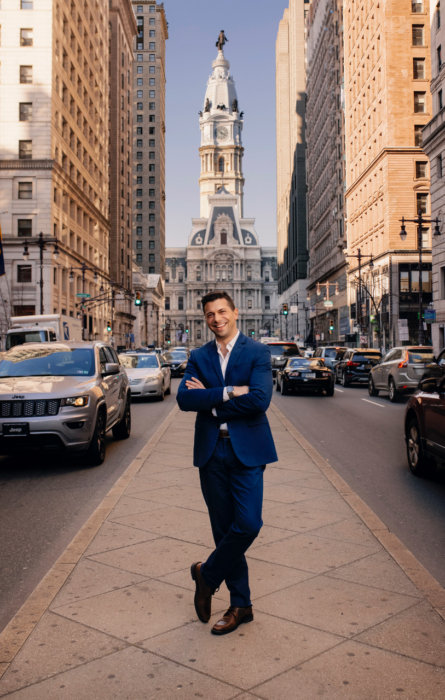
When you zoom out beyond the cultural institutions and businesses that support them, you also have dozens of industries — from marketing firms to catering companies to framing shops — that thrive because of their creative industry clients throughout the city. This isn’t an example of “trickle down economics” actually working (hint: it doesn’t). It is the embodiment of perhaps the best sentiment uttered by Dolly Levi, the titular Hello, Dolly!, “Money is like manure, it’s not worth a thing unless it’s spread around encouraging young things to grow.”
And grow is just what they do.
When arts programs become the first line items cut from school budgets, it’s often public-private partnerships with local venues that supplement essential exposure to the arts. That exposure sets young minds up to succeed by sparking curiosity, entrepreneurship, and empathy in their fellow citizens. Arts, culture, and community outreach groups are busy adding public art to our streets, turning abandoned lots into colorful gardens and outdoor performance venues, and providing resources and valuable programming to our communities that teach a sense of shared humanity and much-needed cultural perspective.
So, when you can, please support our local artists, arts venues, and nonprofits, whether through a message to them or simply your vote. Let your elected officials know that the arts are not “a nice thing to support” but an essential part of who we are in Philadelphia. The arts not only add color, light, and music to our lives when we need it most, but also adds so much to our city’s economy where we need it most. We should also encourage taking advantage of the many discounted ticket programs and “free nights” designed to ensure the arts are accessible and inviting to everyone in every community. Only when we do, will we truly enjoy all the new ideas learned, all the new experiences with our neighbors and all the jobs secured for our community.
As one of my favorite moments in my favorite TV show of all time, ‘The West Wing,’ says: “There is a connection between progress of a society and progress in the arts. The age of Pericles was also the age of Phidias. The age of Lorenzo de Medici was also the age of Leonardo Da Vinci. The age of Elizabeth was the age of Shakespeare.” It only makes sense that the age of Gritty is the age of Philadelphia’s biggest investment yet in the arts and the creative economy.
Jonathan Lovitz is a democratic candidate for the 182nd District of the Pennsylvania House of Representatives in 2022.
